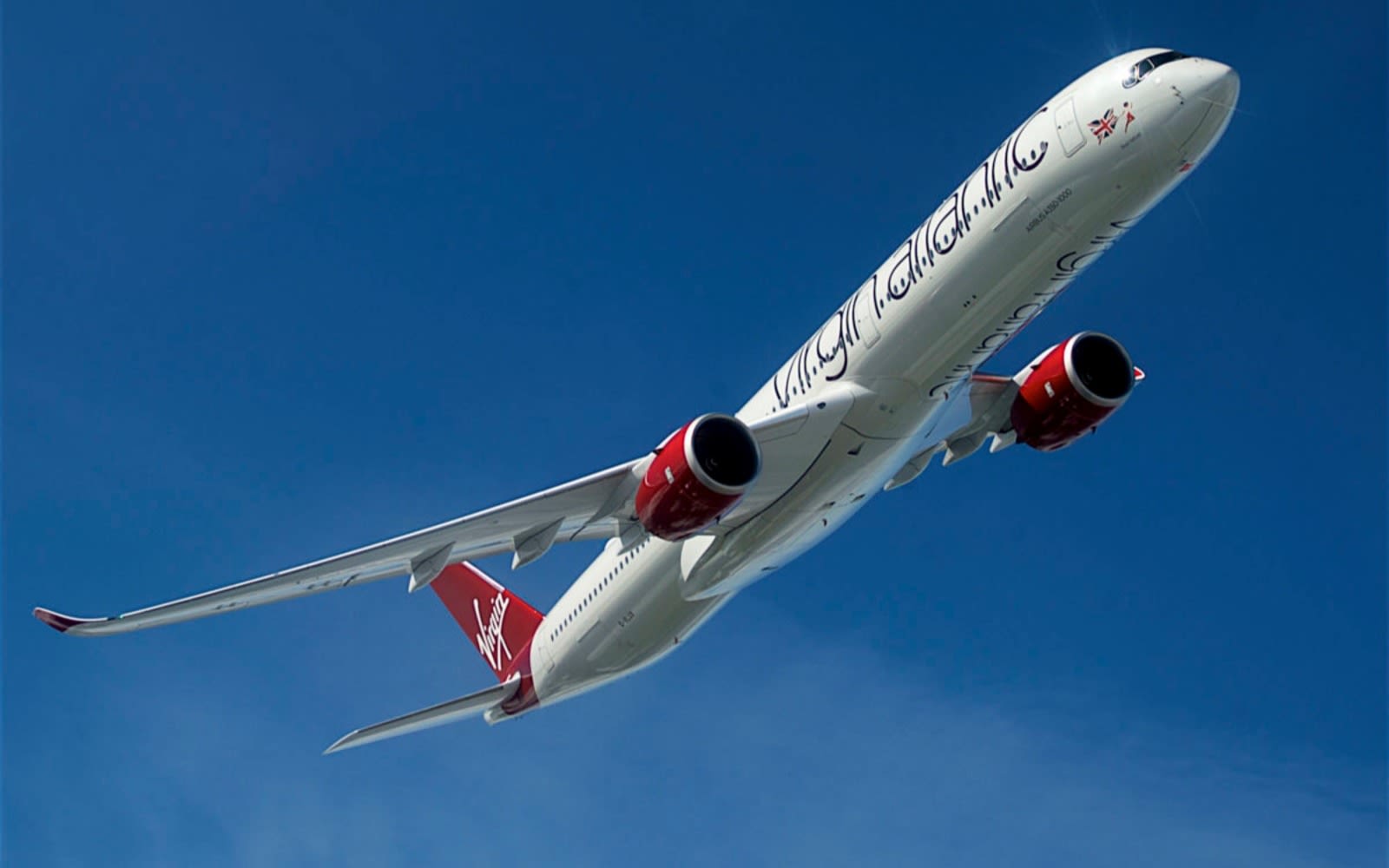Virgin Atlantic sets ambitious carbon targets to achieve net zero by 2050
Virgin Atlantic is on a mission to achieve net zero by 2050 and has announced ambitious carbon targets to help it achieve this goal.
The airline’s new targets set a clear pathway to net zero by 2050, to achieve:
By 2026: 15% gross reduction in CO2 per RTK (revenue load in tonnes multiplied by the distance flown) achieved through continued fleet transformation and operational efficiency
By 2030: 15% net reduction in total CO2 emissions, including 10% of fuel sourced from sustainable aviation fuel
By 2040: 40% net reduction in total CO2 emissions
This builds on the 18% reduction in CO2 per RTK that Virgin Atlantic already achieved by 2019 by modernising its fleet and improving its operations.
Youngest, cleanest fleet in the sky
Virgin Atlantic has been a sustainability leader in aviation for more than 15 years. The airline currently has one of the youngest and cleanest twin-engine fleets in the skies, with an average aircraft age of under seven years. Over the last decade, Virgin Atlantic has invested billions of dollars in its fleet, which has so far delivered a 20% reduction in carbon emissions from its aircraft.
Beyond fleet transformation, Virgin Atlantic is committed to working with new technology innovators. As a long-standing advocate for Sustainable Aviation Fuel (SAF), Virgin Atlantic has partnered with LanzaTech since 2011, flying the world’s first commercial flight operated on sustainable fuels in 2018 and supporting efforts to build the first UK SAF plant by 2025.
Virgin Atlantic also continues to support new technology innovation, most recently working with partners Storegga Geotechnologies and Carbon Engineering to accelerate the use of direct air capture of CO2.
Clean Skies for Tomorrow
As a founding member of Sustainable Aviation and the UK’s Jet Zero Council and through the Clean Skies for Tomorrow coalition, Virgin Atlantic continues to play an active role in bringing the aviation industry and UK government together to accelerate SAF development at scale.
Building a strong SAF industry would be good, not just for aviation, but also for the UK as a whole. It would put Britain at the forefront of commercialising new technologies to support net zero ambitions, capable of reducing the lifecycle carbon impact of aviation fuel by more than 75%, compared to traditional jet fuel.
Shai Weiss, CEO, Virgin Atlantic, commented: “We know that as an airline we have a pivotal role to play in protecting the planet, while connecting people across the globe and strengthening crucial trade connections.
“For more than a decade we’ve been leading the way in the decarbonisation of the aviation industry, and now as we emerge from the Covid-19 pandemic we have a unique opportunity to ensure we return to the skies more sustainably. The carbon targets outlined today will help us achieve this as we work tirelessly on our mission to reach net zero emissions by 2050.
“Aviation is a truly global industry, and we can’t tackle this on our own. That’s why we’re continuing to work closely with the UK’s Jet Zero Council and Sustainable Aviation, as well as aligning with innovation and technology partners across the industry and beyond. There is a long road ahead but we’re committed to pioneering change and being transparent on our progress, on our way to a low carbon future.”


